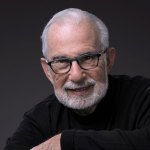We don’t always think of the brain and heart being intimately connected, but they are. When we talk about a heart attack we need to also think about the possibility of a stroke, and if someone has a stroke, we need to look at what might be going on in their heart. The brain and the heart are connected, as are a heart attack and stroke.
What is a Heart Attack?
A heart attack occurs when one or more of the coronary arteries gets a buildup of plaque and that artery closes off, causing damage to the heart muscle. We refer to this as coronary artery disease causing a myocardial infarction.
If the blood supply to the brain is blocked by a similar plaque, that part of the brain will be damaged, and we call that a stroke. Both problems are caused by a build up of fatty deposits called atherosclerosis. The brain is a bit different in that there are two additional causes of a stroke. A blood vessel may rupture causing a hemorrhage in the brain or a blot clot (embolus) can travel from the heart or other part of the body to clog an artery in the brain and cause a stroke.
The peak age varies for heart attacks and strokes. The average age for a heart attack is 66 in men and 70 in women, although the chances of having a heart attack increases steadily after the age of 45. On the other hand, strokes are more likely to occur later in life with three quarters occurring after the age of 65 years and a peak occurring after age 75. However, just because you are young doesn’t mean you can ignore the medical issues that may lead to a heart attack or stroke.
Risk Factors for Heart Attack and Stroke
Both heart attacks and strokes share many of the same risk factors:
- High blood pressure
- Smoking
- Diabetes mellitus
- High “LDL” cholesterol
- Physical inactivity
- Obesity
The brain has another problem to worry about. Atrial fibrillation is a disorder where the atrial chamber in the heart “wiggles” instead of contracting regularly. Blood clots can form in the atrium and travel up to the brain to cause a stroke. The risk of having atrial fibrillation increases significantly as we age, and it is important to teach people to take their pulse and look for irregularities. Many times a person does not realize that they are in atrial fibrillation. Once identified your doctor may attempt to convert you back to a regular heart rhythm, but you will most likely end up taking a type of blood thinner to prevent the formation of blood clots.
What You Can Go to Prevent a Stroke or Heart Attack?
We have a simple saying that, “If it is good for the heart, then it is also good for the brain.” First it is never too early to start to eliminate bad habits and acquire more good habits.
- Know your blood pressure and control it. There are new strict guidelines. A little bit of hypertension is generally not OK.
- Monitor yourself for atrial fibrillation.
- If you smoke, STOP!
- Treat elevated cholesterol, which means having it checked at a young age.
- If you drink alcohol, do so only in moderation.
- Control diabetes mellitus.
- Develop a regular exercise routine of at least 150 minutes each week of walking or activities that raise your heart rate.
- Eat a sensible diet and if you are overweight, it is time to get serious about weight loss. There is not one special diet, but portion control is a good place to start.
- Check with your doctor about whether you might have atherosclerosis in your peripheral (carotid) arteries.
- If you develop chest pain or signs of a stroke seek medical attention (call 911) immediately.
Heart attacks and strokes are preventable. Don’t wait until you have had one and are working on preventing a second episode. Get to work now.
Remember, if it is good for your heart, it is also good for your brain.
The content of this site is for informational purposes only and should not be taken as professional medical advice. Always seek the advice of your physician or other qualified healthcare provider with any questions you may have regarding any medical conditions or treatments.



